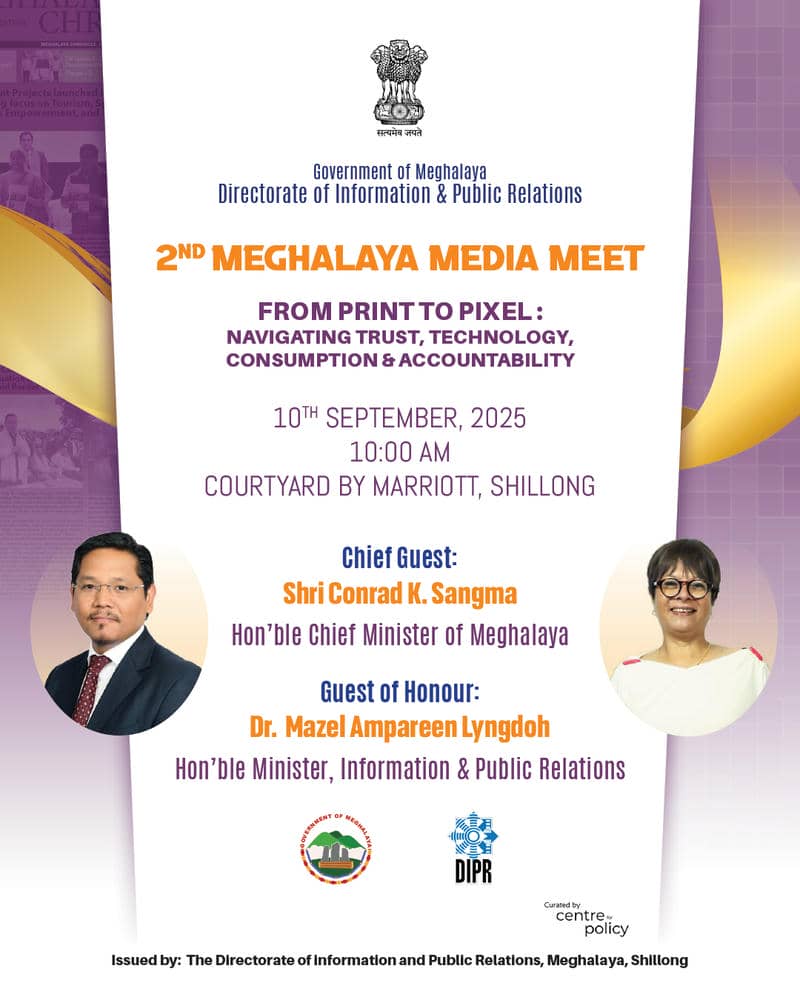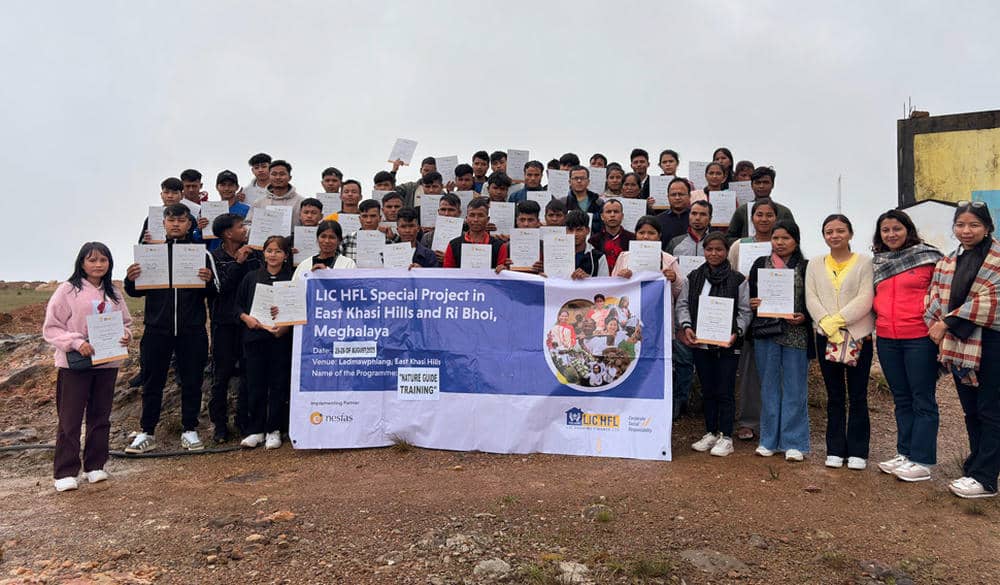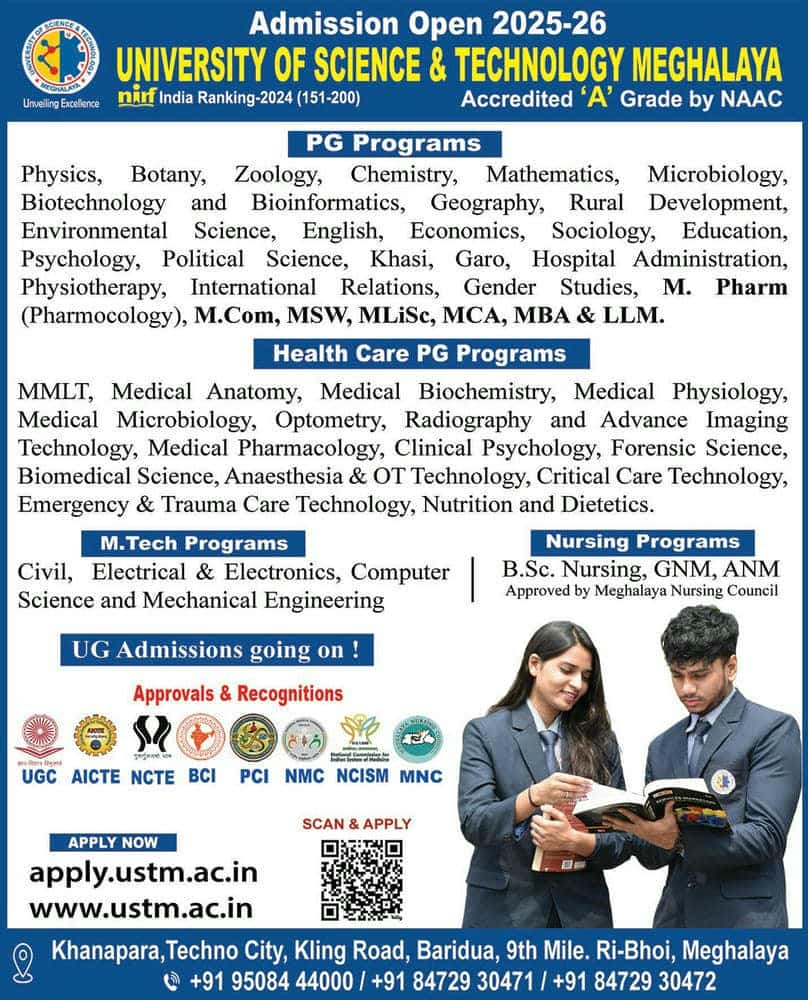Meghalaya youth trained as nature guides to lead eco-tourism drive

A pioneering initiative in Meghalaya has opened new pathways for rural youth to blend livelihoods with conservation. In East Khasi Hills, a specialised training programme has equipped 100 young people with the skills to become professional Nature Guides, preparing them to promote sustainable, community-led tourism in the state.
The training, held in two phases from August 25–29 and September 1–5, 2025, took place at Ladmawphlang and Laitsohpliah. Organised by NESFAS with support from LIC Housing Finance Ltd. (LIC-HFL), the programme focused on building capacity in villages to develop eco-friendly tourism that showcases natural landscapes, cultural heritage, and indigenous knowledge.
More than guiding tourists
While many expected the training to focus solely on handling tourists, it turned out to be much broader. Participants explored biodiversity, Khasi and Jaintia cultural traditions, significant heritage sites, indigenous land rights, and the role of tourism in strengthening Meghalaya’s economy. They also learned practical skills—storytelling, multilingual communication, tour planning, logistics, stakeholder collaboration, safety and first aid, and crisis management.
Importantly, the training included business skills such as entrepreneurship, digital marketing, and online promotion. By doing so, it encouraged participants to see tourism not just as a service but as an opportunity to build sustainable livelihoods.
Transformative experience for youth
For many, the five-day programme was a turning point. “We initially thought this training would focus only on guiding tourists and managing tourism, but we realised it was much more than that. It taught us about personal growth and how we can contribute positively in our everyday lives,” said Sephrin Nongrum, a youth from Umsawwar.
Queentymary Jalong from Liarsluid echoed this sentiment: “The training has given us many ideas on how we should be and what we need to do in this role. We have truly benefited a lot from this programme.”
Others highlighted how it instilled courage, kindness, and confidence. “This training has benefited me personally. I have learned many important values such as communication, trust, courage, and respect, which have encouraged me to be brave and confident in pursuing this work,” said Ripynshai Diengdoh from Dewlieh.
Guided by experts
The sessions were conducted by professionals from diverse fields: Gratia E. Dkhar and Dr. Kitboklang Nongrum from NESFAS, Gerald Samuel Duia of Duia Trailblazers, Baiarjingmut Kharbuli of Excel Well Soft & Life Skills Training Institute, Dr. H. H. Mohrmen of SURE, independent tour guide Riteilang Khongrangjem, and Ialamphang Lyngdoh, President of the Tour Guides Association of Meghalaya. Their combined expertise ensured the training covered ecology, culture, entrepreneurship, and leadership.
“The youth must believe in themselves, take opportunities step by step, cultivate leadership qualities, and strive to become positive influencers within their communities,” emphasised trainer Baiarjingmut Kharbuli.
Linking livelihoods with conservation
NESFAS sees the programme as part of a broader vision of community empowerment. “One of the major components of NESFAS is to improve the livelihoods of our communities through nature-based solutions. To prepare them for immersive agri-tourism, young people must gain the exposure needed to provide quality service to guests,” explained Pius Ranee, Executive Director of NESFAS.
Trainer Gerald Duia added, “This initiative not only conserves the environment but also transforms conservation into tourism livelihoods. It is a step towards creating eco-conscious individuals who can shape the future of tourism in Meghalaya.”
Towards sustainable tourism hubs
By combining cultural identity, ecological awareness, and entrepreneurial skills, the programme positions youth as custodians of both heritage and environment. Villages can now emerge as vibrant tourism hubs where communities actively engage, showcase traditions, and generate income sustainably.
As Ladappura Pyngrope from Mawpynthymmai put it: “NESFAS has invested greatly in providing us with quality training, and now it is our responsibility to apply all that we have learned.”
This initiative, the first of its kind in Meghalaya, is more than training guides—it is about shaping a generation of eco-tourism leaders who can transform the state’s natural and cultural wealth into shared prosperity.





Leave a Reply